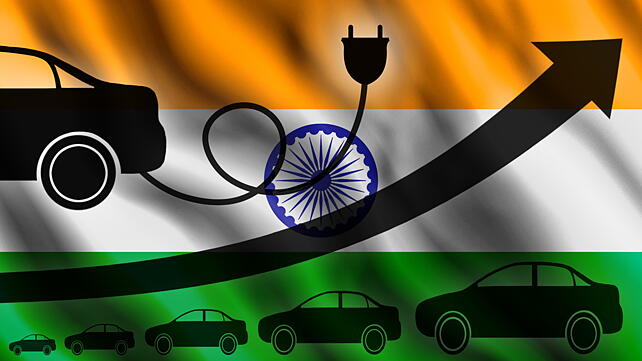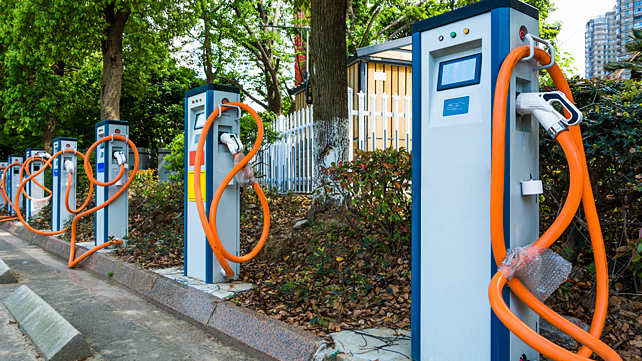
India's automobile industry is one of the country's most important drivers of economic growth. It is, unfortunately, the biggest contributor of pollution too. Multiple cities in India repeatedly feature in the list of ‘most polluted cities’ in the world.
In recent years, the use of EVs (Electric Vehicles) has increased, with more and more consumers becoming aware of the environmental catastrophe that vehicle emissions bring and the havoc it wrecks on our health.
EVs are unquestionably an excellent approach to reduce fossil fuel consumption. As a result of the pressing need for environmentally friendly, long-term solutions, businesses, individuals, and the government are actively working towards building an EV-conducive environment in the country.
Despite certain concerns such as range anxiety, EVs are rapidly gaining traction in India, even as these concerns are gradually being addressed by companies focusing on bolstering EV infrastructure. With rising fuel prices and government incentives making EV purchases more affordable, EV adoption is predicted to surge exponentially by 2025.
Let's take a look at some of the factors that are driving EV adoption.
Continuous Rise In Fuel Prices: Fuel prices in India have constantly been on the rise due to severely heavy taxes, and they are expected to skyrocket further in the coming months and years. Apart from that, increases in fuel prices are raising the operating costs of ICE vehicles, placing a strain on the budgeted living of the middle class, which comprises of a significant percentage of the country’s population. As a result, switching to EVs is proving to be a smarter, more efficient, and feasible alternative.

Subsidy On EVs: Aiming for greener and cleaner cities in India, government entities are pledging their full support to make EVs more accessible and affordable. With the government increasing subsidies on EVs, the acquisition cost gap between ICE vehicles and EVs is decreasing, resulting in their steady growth. Such tax exemptions and EV subsidies will allow more people to adopt EVs.
Exemption Of Permits, RTO Taxes: The need to transition away from carbon-emitting vehicles and toward sustainable mobility has never been so important. Now that the government has realised the need for change and to achieve an ambitious target for electric mobility in the country, steps are being taken by the government to lessen reliance on internal combustion engines. The exemption of permits and RTO taxes on EVs is one measure that is making buying and owning commercial EVs easier.
Excellent Result Of Lithium Batteries: One concern among people that are holding them back from making the switch to EVs is that, while one can refuel their vehicle in minutes, EV charging stations are not as common as fuel stations, at least at the moment. But high-performance lithium batteries that provide high mileage per charge, quick charging, and three years of warranty, make EVs a great replacement for IC engine vehicles, thus boosting the EV industry. Besides, multiple start-ups are working towards solutions that will solve the range anxiety and make for seamless, convenient charging of EVs.
Entry of prominent manufactures in EV: The global response to the COVID outbreak has shown that the world is looking for an alternative for China. So, with the gradual, inevitable shift to EVs, more well-known firms are entering the motor and controller manufacturing business, resulting in higher-quality powertrains and less reliance on China. Boosting India's EV ecosystem by encouraging production, domestic consumption, and exports will help the country create jobs and thrive economically.

High-Speed Charging Networks Across Cities: People are reluctant to purchase EVs because they are anxious about the range and the distance they can cover. However, with plans of setting up a web of high-speed charging networks across cities, customers' range anxiety in EVs will be reduced. India will soon have sufficient EV charging infrastructure to support its expanding EV industry.
Banning Of Diesel Three-Wheelers: Three-wheeler EVs are well-suited for all kinds of effective deliveries, whether it's for retail kirana operations, e-commerce, or restaurant delivery. Furthermore, the government's decision to ban diesel three-wheelers will play a pivotal role in driving EV adoption.
Summing Up
EVs will help pave the way toward developing an innovative, smart, advanced transportation infrastructure in India that can meet the needs of the country's massive population. It will usher in a green and clean revolution by providing society with pollution-free vehicular transport solutions by reducing the carbon footprint and by boosting employment.
About the Author:Siddharth Agrawal is Managing Director of Godawari E-mobility